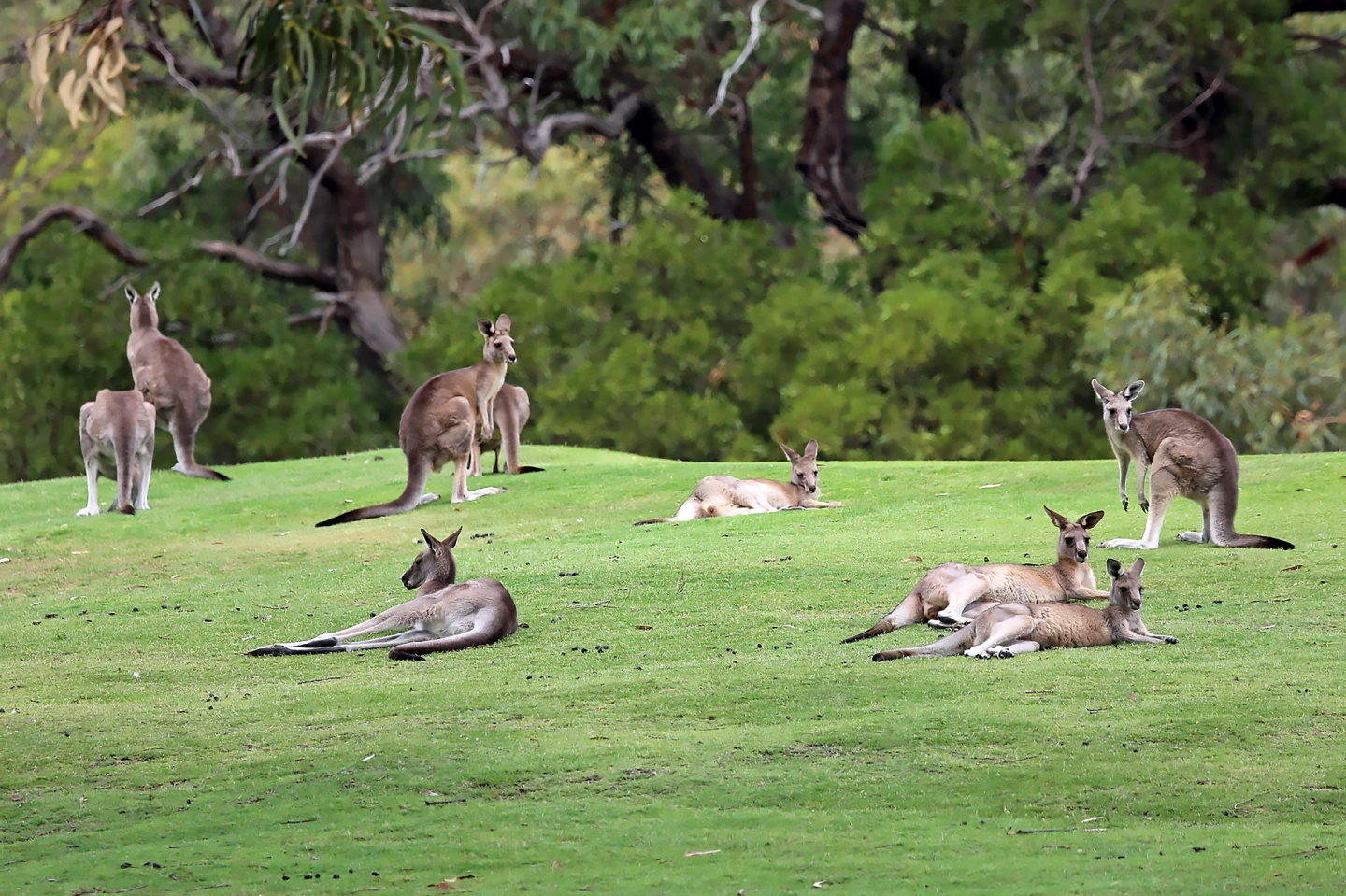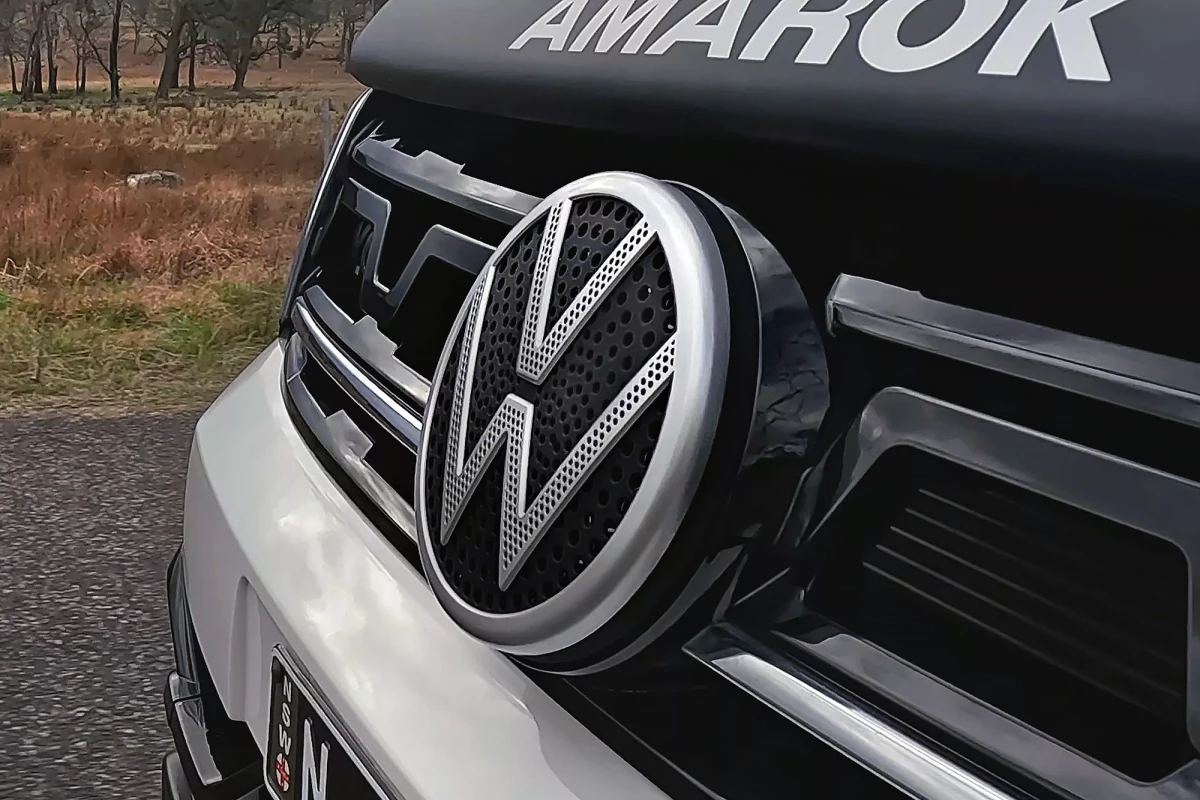Volkswagen has announced the development of RooBadge, a device that emits species-specific sounds to drive away kangaroos and reduce the risk of animal collisions on Australian roads. There are plans to adapt the device to deter deer and other road-tripping wildlife worldwide.
Australia is known for its wildlife. But one animal in particular – the kangaroo – fares worse than most when it comes to motor vehicle collisions. Roos make up more than 80% of all accidents with wildlife, and because of their strength and speed, they can do massive damage to a car (and vice versa). Alarmingly, in research by general insurance provider Australian Associated Motor Insurers Limited (AAMI), 61% of drivers admitted that they’d swerve dangerously to avoid hitting a kangaroo on the road, putting themselves and other road users at risk of injury or worse.
Volkswagen (VW), in partnership with wildlife rescue organization WIRES and leading kangaroo behaviorists from the University of Melbourne, is developing the RooBadge to address this issue and potentially save the lives of both drivers and roos. RooBadge will be a plug-and-play aftermarket accessory for the VW Amarok, replacing the existing front badge.

Australians, or anyone who has visited Australia, will likely be familiar with the mobs of kangaroos that gather on golf courses. So, that’s where the researchers behind RooBadge started: identifying which sounds made the macropods lounging by the ninth hole sit up and pay attention. They found that the roos responded strongly to ‘biologically meaningful’ sounds such as bird alarm calls, predatory sounds, and distress or aggressive calls. The researchers mixed these meaningful sounds with synthetic ones.
Directional speakers were then developed and field tested to ensure that a focused beam of roo-dispersing sound could be produced at different frequencies and a distance far ahead of an Amarok traveling at 100 km/h (62 mph).
For over six months, the researchers placed Amaroks equipped with directional speakers, motion sensors, and 360-degree cameras in locations popular among kangaroos. A random sound was played when a roo passed in front of a vehicle, and the animal’s reaction was recorded. After observing positive reactions, research ethics approval was obtained to test the device on wild kangaroos in a moving vehicle.

One of the kangaroo behaviorists involved in RooBadge’s development, Dr Helena Bender, spent three years evaluating a similar device called the ShuRoo, with her findings published in the journal Australian Zoologist. According to the website that sells it, the ShuRoo emits a high-frequency sound that “creates an extremely loud police siren type of alert to kangaroos” at a range of about 400 m (1,312 ft) in front of and 50 m (164 ft) on either side of the vehicle it’s attached to.
The Chrome ShuRoo costs A$569.25 (US$370.39). However, Bender’s study found that the ShuRoo was ineffective at preventing collisions. The overall mean rate of roo collisions was 1.16 per 100,000 km, with no significant difference found between vehicles fitted with a ShuRoo and those without. Granted, the study evaluated the Mk II ShuRoo, and its inventor is currently selling the ‘new’ Mk V, so, hopefully, some improvements have been made.
What may set RooBadge apart is its ability to adapt its sound to particular kangaroo species. Touted by VW as a "world-first innovation," the device uses machine learning to compare its GPS coordinates to kangaroo distribution data to optimize its sound based on the species inhabiting a particular area.
At the moment, RooBadge is tailored to the Eastern Grey, but there are plans to adapt the sound for the Western Grey and Red Kangaroo. RooBadge also links to an in-car app that automatically activates the device when the vehicle moves through a known kangaroo collision hotspot. Animal protection organizations like WIRES can update hotspot locations.

VW is developing a universally (read: manufacturers other than VW) mountable version of RooBadge that attaches to a car’s front license, or number, plate. They’re also working with international partners to adapt RooBadge to deter deer and other wildlife that pose a problem to motorists worldwide.
RooBadge and the universally mountable version are not yet available to buy. Tests are still being run to optimize the device’s sound profiles. In the meantime, iPhone and Android smartphone users can check out both products in AR on VW’s RooBadge webpage.
Source: VW








